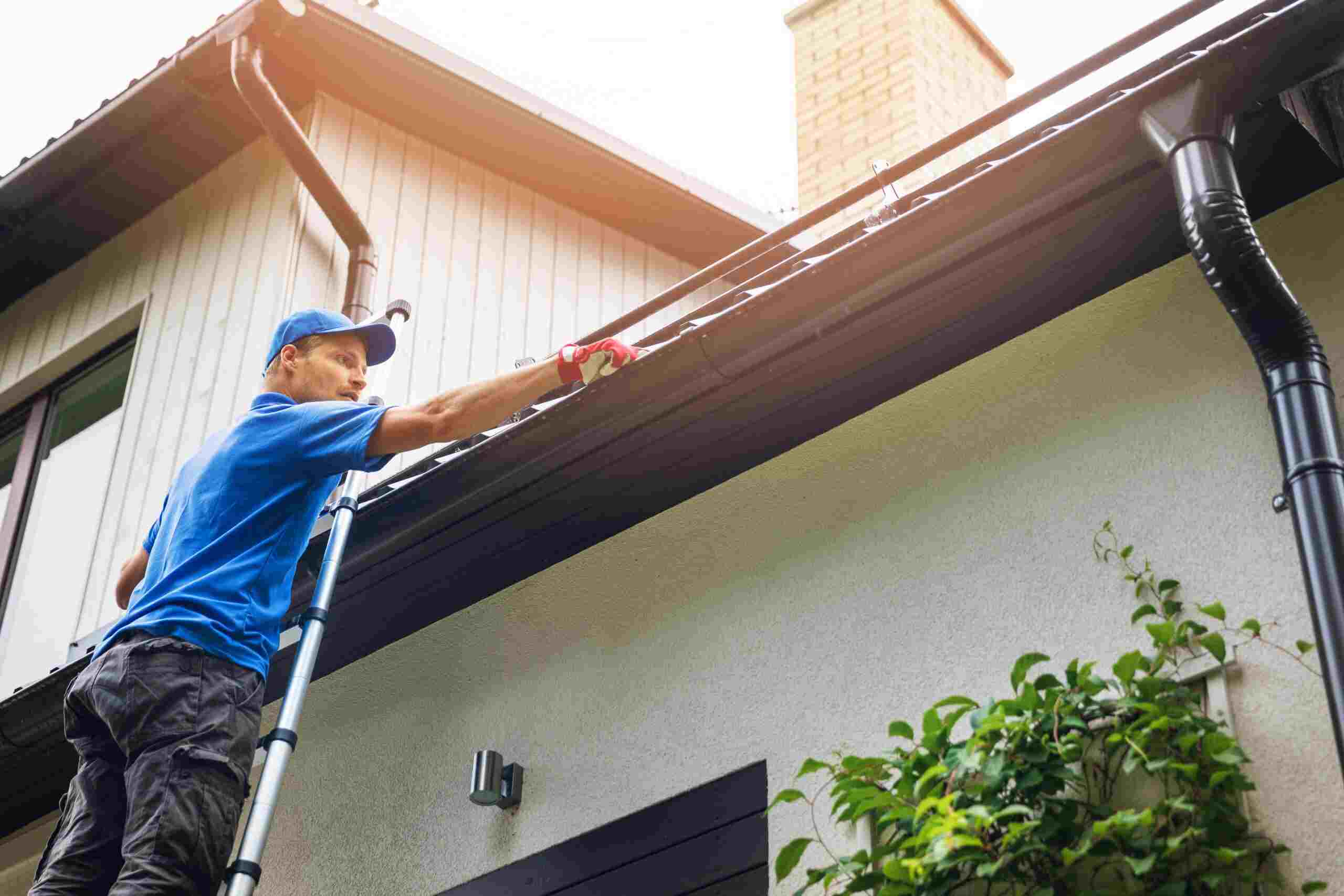‘Tis the season when the great Sunshine State welcomes an influx of Northern snowbirds, eager to escape the chilly winter by heading south.
As soon as the temperature begins to drop, these retirees pack up their bags and say “see ya in a few months!” to their summer home. Ready for warm weather, these nomads typically stay in Florida from November/December through March/April— or as long as the North sees ice and snow.
Four to six months is a long time to leave your home unattended, thousands of miles away. That’s why it’s crucial to winterize your Northern home before making the trek South.
Fear not, snowbird! We’ve got you covered. Here’s your ultimate checklist for preparing your home for a quiet few months ahead:
Outdoors
- If it’s not snow-ready, bring it in! Chances are, you may have already brought your landscape features in after fall. If you haven’t, now’s the time to lug in or cover and secure all patio furniture, garden features, or decor (Christmas lights included if you’re heading south post-holiday!).
- Clean those gross gutters. While you’re gone, debris and muck can accumulate in your gutters and cause drainage problems while away. Climb up that ladder or hire a handyman to clear them out.
- Double check drainage systems. Speaking of water issues, don’t forget to make sure your exterior drains are cleared. If you have poor irrigation problems, there’s no better time than now to fix them. Remember, water turns into ice when cold. You don’t want any trip-and-fall incidents on your sidewalk. Plus, ice can do a real doozy on your driveway, cracking concrete and cutting down on the lifetime of your expensive paving.
- Figure out who’s shoveling, plowing, and de-icing. You need to make sure your sidewalks and driveway aren’t covered in snow and ice while you’re gone, which could be hazards for passersby and contribute to drainage issues when they melt. Consider chatting with your neighbors to see if someone wouldn’t mind shoveling or hiring someone to clear your property after each snowfall.
- Scope out your roof. See any raised or missing shingles? Because of how expensive a new roof can be, we often avoid repairing or replacing it. The issue is, while you’re gone for months, this could invite pests and even lead to water damage if not properly fixed.
- Trim or cover your trees and shrubs. If there are any skeptical branches that are dying and could fall onto or be blown against your home or onto your neighbor’s property, take care of those now. The cold winter ahead will only make them more brittle and likely to snap. Plus, your plantlife will be exposed to hungry deer and critters, so be sure to wrap your trees and shrubs.
- Winterize your pool. You’d have to do this anyway, but since you’ll be gone, triple-check you’ve crossed all your t’s and dotted all your i’s with your pool before leaving.
- Don’t forget electrical safety. Do you have a bunch of power strips outside? Do you have electrical equipment in your shed or somewhere that needs extra protection? Here are 8 outdoor electrical safety tips you can’t miss.
Surveillance & Security
- Install some cameras. Wouldn’t it be nice to know if someone was knocking on your door? Or if a thief was snooping around your windows to see if you’re home? Mount a few well-placed cameras and set up motion-detection alerts to monitor your Northern home from your warm home-away-from-home.
- Invest in a timed lighting setup. There’s nothing like lights to deter mischief. Plus, you’ll need them to get a clearer shot wherever your cameras are pointed. Getting spotlights and floodlights that turn on automatically by motion or on a timer is a huge energy-saver. Even better if you can control when they go on and off remotely from a smartphone app!
- Arm the alarm. Not only do you want to see what’s going on outside, you want to know if something is happening inside! Make sure your home security system is all set up and good-to-go before leaving. It might be wise to get a few indoor cameras too that are hardwired in, so you can check in once a day that all is well.
- Lock up or take valuables with you. That expensive jewelry collection on your dresser is an easy-target if a thief gets in. With being away, you don’t know how long it’ll take to be alerted that they’re inside and get the police there. A criminal could be long gone with your prized possessions. Anything that’s one-of-a-kind or valuable should be placed behind an extra lock and key or taken along to the South, so it’s safe by your side.
- Tell your neighbors and loved ones. Those in your community can keep a vigilant eye on your property if you let them know when you’ll be gone. You could even ask a few folks you trust to check up on the property or home every week or two for greater peace of mind.
- Change the batteries in your smoke detector. If a fire should start while you’re away, you want to make sure your fire alarm is working and that it’s connected to alert you and your local fire department of the danger from afar. Here’s how to properly change your smoke detector’s battery.
Temperature Control
- Prep the fireplace. Take down the mantle wreath or any items near the fireplace that could potentially burn. Better yet, seal the fireplace to save on insulation and reduce fire hazard risks.
- Get the thermostat right. No use keeping the house warm when it’s empty. But you also don’t want to let it drop below 50 degrees to prevent your pipes from freezing. Your best bet is to invest in a remote-controllable thermostat to keep an eye on your temperature from a few states away and adjust accordingly to the weather.
- Get your backup generator ready. If there’s an outrage while you’re away, you want to make sure your pipes don’t freeze and that your home security system isn’t down. A handy backup generator will do the trick, automatically providing electricity to your home even during an outage. Here are a few questions to ask before choosing a home generator if you don’t have one!
- Keep interior doors open. You may think it makes more sense to close your bedroom and bathroom doors while gone to regulate temperature, but it’s actually better to allow your rooms to breathe. Ventilation is key!
Gas & Water
- Shut off your main water valve. Don’t come back to a water leakage or flooding problem. Keep the drains open to allow pressure balance, but turn off the flow of water. A plumber could also help you to winterize your pipes to play it safe.
- Turn off pumps, except the sump pump. No need to have your fountains or water pumps running while away. If you have an aquarium, this is a different story. Obviously, someone will have to stop by to feed and check on your fish and critters, but don’t forget to ask them to properly keep the filter clear or clean the tank as needed. If you have a sump pump, make sure that’s on and functional to take care of any flooding while away!
- Turn off the gas. You could even have your gas service temporality suspended if your provider allows for the few months you’re in Florida.
Food & Kitchen
- Empty out that fridge and freezer. The last thing you want is to come home to rotten food and a rancid-smelling house. That’s why it’s crucial to clear out the fridge before leaving. Many even unplug the entire unit while gone for many months. Keep the doors open after wiping down so it can properly dry and not form mildew inside.
- Keep non-perishables locked away. Don’t leave any food sitting on your counter or within easy access for bugs or mice, should they get in. We recommend setting a few ant traps in corners to prevent them from getting into the kitchen or other pest control measures.
Electrical Safety
- Unplug all you can! If you won’t be using any of your electronics while away, why leave them plugged in? Unplug all appliances that aren’t necessary for security before your journey south. This includes power strips and extension cords that could be a fire hazard when left unattended for months. Remember, all it takes is for one power surge to create a spark and put your home in danger.
- If you want indoor lights, keep them on a timer. You don’t want to run a light for months straight while you’re gone. If interior lighting is a concern, some lighting fixtures have remote access and can be set on timers, making it look as though you’re home to passersby at night without an insane electric bill or increased fire risk.
Miscellaneous
- Take care of your plants. If you’re able to bring your houseplants with you to Florida, great. If not, ask someone to come once a week to water them.
- Forward your mail. This is easy to miss with all your other checklist items. We always like to remind our customers!
Are Your Electronics Safe to Leave?
Download our Electric Toolkit to make sure you’re ready for your long getaway.
Before you leave, it may be wise to bring in a professional to assess your electronics, ensuring there are no fire hazards. Don’t let any necessary repairs go either! It’s better to leave with peace of mind that you did all you could to prepare your house for your extended getaway.
Explore our Home Electrical Services page, or give us a call at 239-307-0716.



